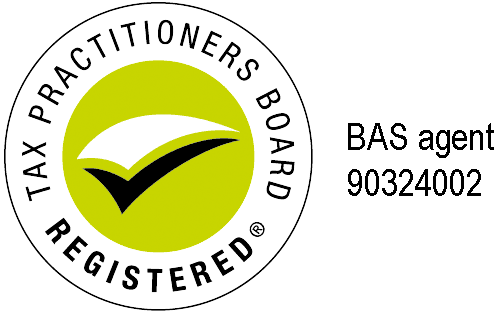The financial news your Business needs……
The 2013 Federal Budget was handed down on 14 May. While it contained relatively few big ticket items for business owners, the following should be noted.
1. Bright Economic Outlook
While the headline take-out from the Budget was somewhat gloomy with a forecast $18 billion deficit, this clouded the otherwise sunny macroeconomic picture. Despite the large deficit, the good news for businesses is that the short and medium term outlook for the Australian economy is favourable, with solid growth, low unemployment and well-contained inflation forecast for 2013/2014.
Specifically:
· Economic Growth – the Australian economy is forecast to grow by 2.75% in 2013/2014, picking up to 3% by 2014/2015.
· Employment – there is expected to be 1.75% growth in employment through the year to the June quarter of 2014, and 1.5% through the following year to June 2015.
· Inflation – in good news for interest rates, inflation is expected to remain well contained. Both headline and underlying inflation are forecast to be 2.25% through the year to the June
quarters of 2014 and 2015. With inflation within the Reserve Bank’s 2% to 3% target band, it makes interest rate increases much less likely.
2. Trusts Crackdown For the many that operate their businesses through trusts, the Government is devoting more resources to compliance in this area. The Government will provide to the Tax Office an extra $70 million over the next 4 years to undertake compliance activity in relation to trust structures. A taskforce will be established to target the exploitation of trusts to conceal income, mischaracterise transactions, and artificially reduce trust income amounts – all of which results in an underpayment of tax. The taskforce will also focus on taxpayers who have been “involved in egregious tax avoidance and evasion” involving trusts.
In view of this crackdown, and the numerous changes to the trust laws over recent years, it’s recommended that business owners ensure their affairs in this area are in order, particularly ensuring that all resolutions to distribute trust income can be evidenced, and that amounts have been properly declared on beneficiary and trust returns.
3. Disaster Relief Payments
Disaster Income Relief Recovery Payments provided between 3 January 2013 and 30 September 2013 will be exempt from income tax.
These payments provide financial assistance to small business owners and farmers who experience a loss of income as a direct result of an Australian natural disaster. Some individual taxpayers may also have received these payments in which case they too will be exempt from income tax.
More Information
Although these are the headline small business announcements, the Budget Papers run into hundreds of pages. You can read more about the Budget at www.budget.gov.au.
Your Hip Pocket – Increased Super
On 1 July 2013, the long standing 9% superannuation guarantee (SG) rate will increase to 9.25%, payable to your employees ontheir ordinary time earnings, and also payable to many contractors that you engage. While this measure will mean extra superannuation is payable to employees, employers have the option to take this increase into account in any salary review (and increase wages by 0.25% less than they otherwise would have) or even reduce the employee’s current take home pay by this amount – there is no law prohibiting this. Indeed, when superannuation was first introduced by the Keating Government in
1992, employees generally saw a reduction in their take home salary, with some of it being redirected
and paid to superannuation. Alternatively employers may elect to absorb the superannuation cost
themselves and increase the overall employee package by 0.25%.
In its Budget reply speech, the Federal Opposition announced that it would not proceed with the current Government’s plan to increase the SG rate to 12% by 2019/2020. However, even if the Opposition is elected later this year, this will not affect the increase to 9.25% from 1 July 2013. Under the Opposition’s policy, the increase to 9.25% will remain, however the rate will be frozen at this level until 1 July 2016 at which time it will increase to 9.5%. It will then incrementally increase each year until it reaches 12% in 2021/2022 (two years later than the Government’s target date of 2019/2020).
Also note that from 1 July 2013 employers will for the first time be liable to pay superannuation to workers aged 70 and over. Employers will need to check their records to see if any of their employees are affected. If employers absorb this cost themselves, it will in effect mean that the cost of employing workers of this age becomes 9.25% more costly. Once this change comes into force, the only agedbased SG exemption will be for employees under 18 years of age who work less than 30 hours in a
week.
Business News – The Future of the Carbon Tax
In a survey of 1700 small businesses conducted by the Australian Chamber of Commerce and Industry which was released on 9 May 2013, the abolition of the Carbon tax was nominated as one of the top three wishes of survey participants. While the Federal Opposition has promised to do just that if it wins Government, the Budget itself contained some good news on the future impact of the Carbon tax on business, even if the current Government is re-elected and the tax is retained.
Even if the Carbon tax remains in force after the next election, its effect in future years is likely to be much less than was previously forecast. The Carbon scheme was implemented with a three year fixed price tax to then transition into an emissions trading scheme commencing 1 July 2015 at which time the price per tonne of Carbon emitted was to be set by international markets. While the Government previously forecast that this price would be $29 per tonne, it is now apparent that it will be significantly less than that. In the Budget papers the Government has downgraded that 1 July 2015 forecast to just $12.10 (it currently sits at $24.15 per tonne).
From a business standpoint, the collapse of the Carbon price means that there will be far less Carbon tax related pricing impact on small business, even if the tax is retained in future years.
Human Resources – Making Employees Happy
Renowned US-based psychotherapist Dianne Lang says that happiness is the key to a good
workplace:
“When workers are happy at the workplace, they want to work harder and smarter. So what you do is make the work environment a place of comfort and fun! Happiness increases our levels of dopamine which produces our learning abilities. It helps us learn better and more efficiently.”
Here are Dianne’s top five ways to make a happier workplace:
1. Appreciate your employees by recognising their small accomplishments with praise and appreciation. You can never say too many times: ‘Thank you. I appreciate your hard work!’
2. Don’t micromanage your employees! It lowers motivation, the mental health of the employee and the overall morale of the department.
3. Even more important than money/getting a raise is free time. Offer well performing employees a paid day off or offer a more flexible schedule.
4. Allow your workers to take small breaks where they can get up, stretch, and take a break from the computer so they can refresh, which will help improve their creativity and productivity.
5. Have weekly meetings going over the good news for the week. Most meetings go over what’s missing, or bad events that have happened. Switch it around to sharing the good news in the meeting.
This information is provided by the Australian Bookkeepers Network




